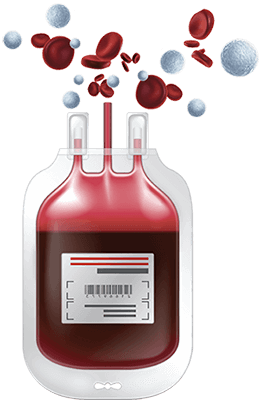Canada's Largest & Oldest Cord Blood Bank
Most parents enjoy the next few months of babyhood the most. Your baby is now alert, responsive and just a bundle of joy to be around. Is your baby starting to show you snippets of his or her personality yet?
Milestones This Month
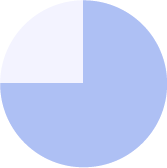
Most babies can
- Roll over from tummy to back
- Play with hand and feet
- Distinguish between bold colours
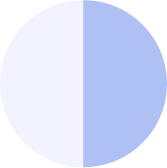
Half of the babies can
- Turn towards sound
- Grab a toy that is just out of reach
- Listen and imitate sounds
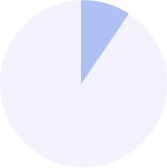
A few babies can
- Sit without support for a few seconds
- Roll over from back to tummy
- Put objects in mouth
- Dislike strangers
Baby Development at 5 Months
According to the growth charts from the World Health Organization, an average 5-month-old baby girl should way around 15.2 pounds (6.89 kilograms) and a 5-month-old boy around 16.6 pounds (7.53 kilograms).
Your baby’s hearing and vision are almost fully developed now. He or she is starting to respond to their name and even trying to communicate feelings to you. You probably find it very easy to determine if your baby is happy, bored or uncomfortable. He or she can now grasp objects and may even be able to pick up and hold large objects like a toy block. What’s more, your baby may be able to entertain themselves for a short period of time. You may find that he or she is content playing with hands and feet or a batting at a mobile on their own.
Your little one may be able to roll from her tummy to her back now. If not, he or she is swaying from side-to-side on the tummy gearing up to roll over. Try not to worry too much about the ability to roll. Some babies do not achieve this developmental milestone until 6 months.
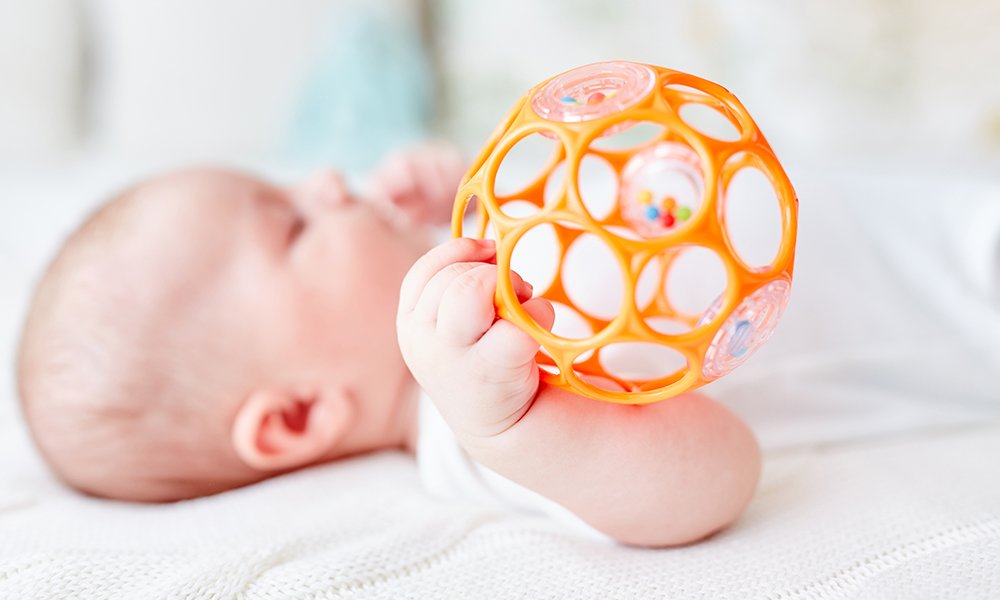
Teething and Object Permenance
Baby teeth can make their appearance anywhere between 3 to 9 months. Some babies find teething extremely painful while others show no signs of discomfort. Signs of teething includes excessive drool, rash around the mouth, ear pulling and cheek rubbing, chewing on the hands, crying, irritability and night waking. Your baby may find comfort in chewing on a teething toy or a cool washcloth. You can talk to your healthcare provider about using a pain reliever at night. Numbing agents or amber teething necklaces are not recommended for teething pain.
At 5 months, babies start to realize that objects still exist even when he or she is not able to see it or learn object permeance. You will find that peek-a-boo is one of your baby’s favourite games at this stage. He or she will laugh with joy when you hide a toy under the pillow and then bring it out a few seconds later.

Baby Tip
Turn your kitchen into a temporary toy room. There is no need to visit the toy store. Your baby will be happy banging pots and pans together or sorting a basketful of plastic cutlery for hours.
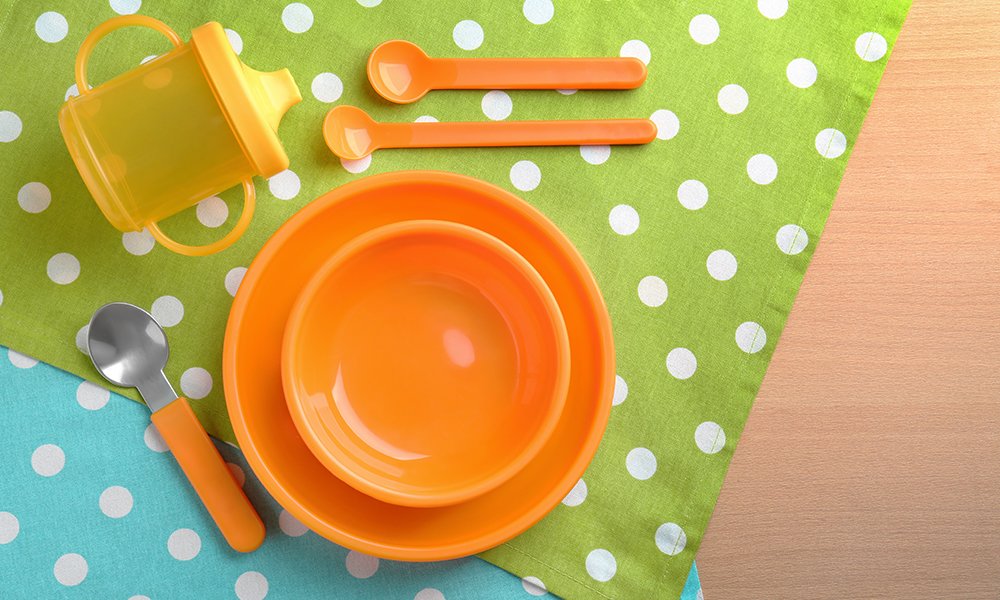
Help Us Raise Awareness about Cord Blood Banking
You’ve already done the leg work planning and researching cord blood banking for your own baby, why not benefit from this knowledge and experience while helping other moms? With our Healthcord Ambassador program you can help us increase public awareness about cord blood and cord tissue banking and earn money doing it. Learn More →
Supporting Your Baby
Feeding
Your baby is still on an exclusively liquid diet. A breastfed baby is still feeding every 4 to 6 hours a day. A formula-fed baby should be taking in around 24 to 36 ounces of formula in 24 hours.
If you are planning to start your baby on solids at 6 months, you can start introducing the mealtime routine to your baby now. Have him or her sit at the table with the rest of the family. You can also start thinking about the foods you would like to introduce your baby to first. You baby will only eat 1 to 2 tablespoons worth of food in the beginning. The idea is to introduce baby to new foods and tastes. Breastmilk or formula will still be the main form of sustenance for the next few months.
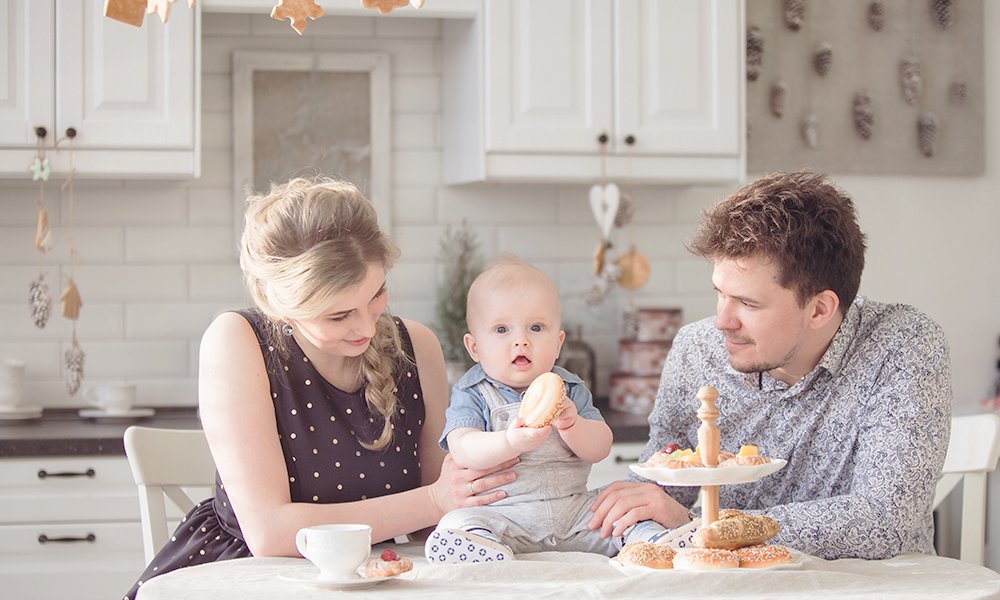
Sleep
If your baby went through or is going through the 4-month sleep regression, you will be relieved to know the end is near. This regression does not last more than 4 weeks. Soon your cranky little one will go back to getting 14 to 17 hours of sleep a day. He or she will get 9 to 11 hours of sleep at night and the remainder in naps. Some babies start sleeping through the night at this point, particularly if they are formula-fed.
If your baby has developed a good sleep routine, this may be a good time to start sleep training. Some parents swear by sleep training, others do not agree with letting the baby cry. The decision is entirely up to you. There is no ideal sleep solution that will fit every baby. Every baby, every family and every situation is unique. Make the choice that is right for you and your baby.
Crash course: Cord blood banking in 11 minutes.


